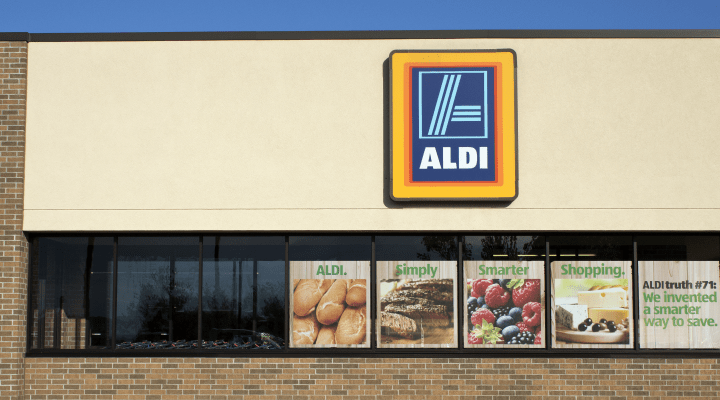Discount retailer Aldi may be a novice when it comes to in-store technology in Australia, but it has plans afoot in the UK to launch an advanced system that will replace checkout entirely. Aldi, which only recently introduced self-serve checkout in Australia, announced last week that it would open its first checkout-free store on a trial basis, at a location in London that is yet to be confirmed. To enter the store, customers will scan a smartphone app. They can then proceed through
rough the store to pick up their items and walk out when they are finished, without making a payment at a till. Shortly afterwards, the customer will be charged using their chosen payment method and will receive a receipt by email.
Aldi team members are testing the technology and members of the public will carry out further trials.
“We are always looking to redefine what it means to be a discount retailer, and the technology involved in this trial will give us a wealth of” information, Giles Hurley, CEO for Aldi UK and Ireland, said in a statement. “We are really excited to be testing this concept that will enable customers to pick from our range of quality products, all available at unbeatable prices, then leave the store without having to pay at a till.”
Aldi said the concept store would employ about the same number of workers as a typical Aldi Local, the retailer’s smaller convenience offering in the UK, which is similar to the Corner Store concept recently introduced in Australia.
Shoppers love it or hate it
Checkout-free technology is still in its infancy in Australia. Woolworths introduced it in supermarkets in 2018, as a trial at its store in Sydney’s Double Bay. Today, there are 36 Woolies stores using the technology, across almost every state. However, the grocery giant has held back on introducing an exclusively checkout-free experience, always having a traditional cashier or self-serve checkout option available to accept cash payments.
Other retailers have followed suit with checkout-free tech. In 2019, 7-Eleven Australia removed physical checkout from the store at its head office in Melbourne. Customers there can pay only via mobile app.
Dr Jason Pallant, a consumer behaviour expert at Swinburne University of Technology, said that while checkout-free technology is on the rise, shoppers either love it or hate it.
“Some consumers love the convenience, and the ability to get in and out without having to line up or even talk to others,” Pallant told Inside Retail. “This can be highly appealing for consumers who know exactly what they want and are on a mission.
“However, other consumers really dislike checkout-free stores for a variety of reasons, from needing additional support from staff, to concerns around data privacy. As with all in-store technologies, some consumers will be advocates while others will be strong detractors.”
The data and privacy component of checkout-free stores is rarely a focus for retailers but it will be a dealbreaker for some shoppers.
“Consumers differ widely in how comfortable they are with being identified, particularly in physical stores,” Pallant stressed. “Checkout-free stores make it clear to shoppers they are being identified and tracked, which many consumers will find very unappealing.”
A new direction for Aldi
For a brand like Aldi, which has traditionally sidestepped digital tech in favour of its low-cost, low-prices model, checkout-free systems are a step in a new direction. Only recently has Aldi Australia started to dabble in e-commerce and Aldi UK launched click-and-collect just last year. It is now available in over 200 Aldi stores across the UK.
“It will be interesting to see whether Aldi follows the trends in this space or looks for ways to take it in a different direction,” Pallant said. “An interesting component to checkout-free stores with Aldi is how they will interact with Special Buys, which are quite a draw for its stores. Will they be able to manage product limits if consumers are able to scan and go with these scarce items?”
In Pallant’s opinion, it can sometimes be beneficial to be a follower, particularly with new technologies; having retailers such as Woolworths and Amazon already leading the way might work in Aldi’s favour, he noted.
“Aldi can observe how retailers like Amazon and Woolworths adapt checkout-free stores, and how consumers respond to them. Inevitably these technologies hit challenges, so Aldi can see what these are and prepare accordingly,” he explained.
“For example, Woolworths is doing random bag checks as consumers exit the store. Aldi can observe how this works, whether it is effective, and how consumers react before deciding whether to adopt a similar strategy.”

